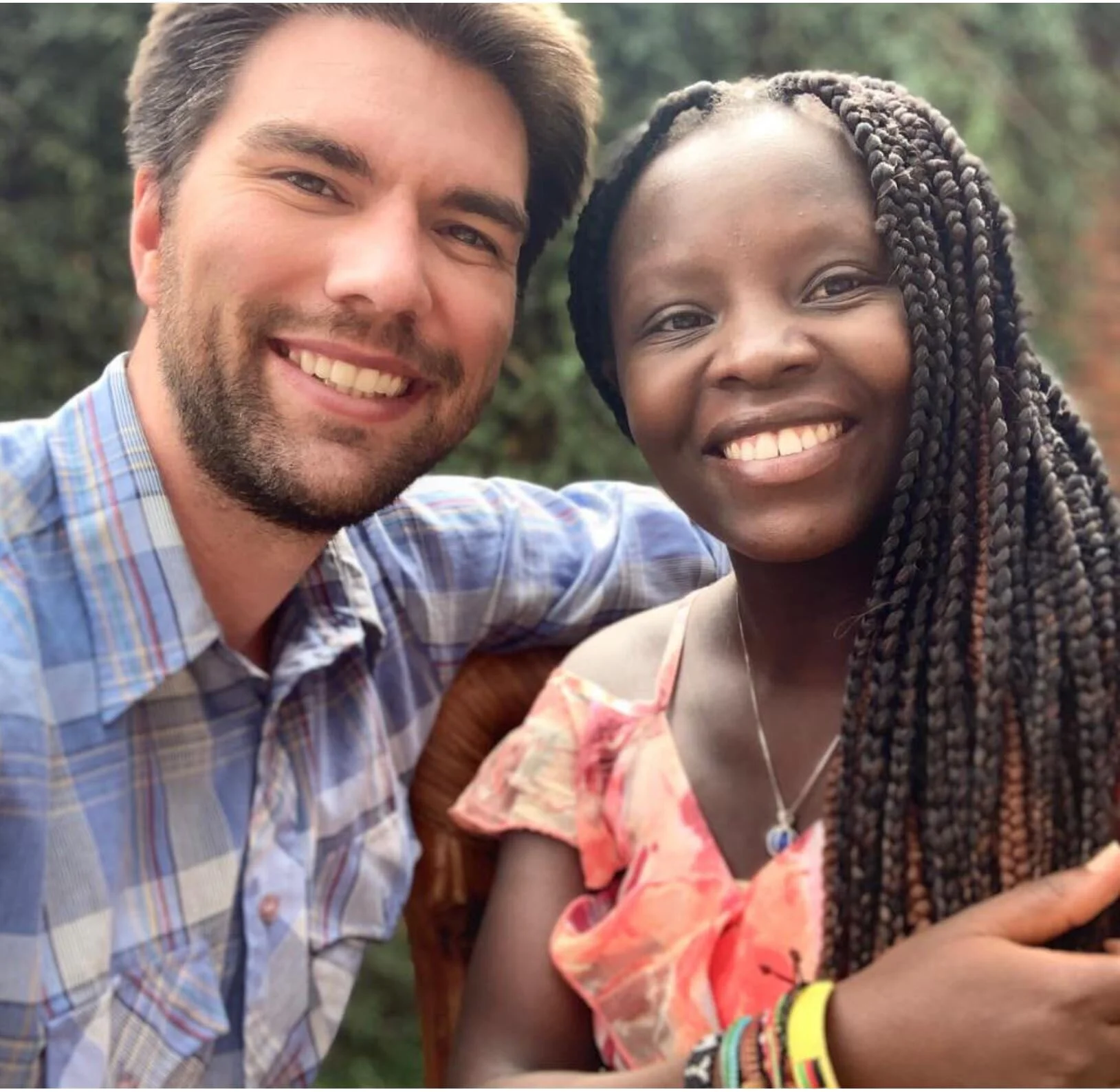The Surprising Gift of Doubt

Let your failures propel you toward your dreams. This is a picture of me and two of my close friends at my MBA graduation from Pepperdine in 2017.
TUNE IN: APPLE PODCASTS I SPOTIFY I STITCHER
What happens when you fail? Do you recover quickly? Do you beat yourself up? Or do you resolve to never try again?
I used to do all I could to avoid failure. On some level, I thought I could die from the humiliation.
When I was forty-three, I went back to school to get my MBA. My goal was to find out how to become the successful creative entrepreneur I’d always wanted to be. Turns out I didn’t need the tuition of a private university like Pepperdine to teach me a lesson life had been trying to teach me all along—the key indicator of success is failure.
Every successful person fails along the way.
Oprah Winfrey, one of the most successful individuals of our time, grew up in poverty and was fired from her first job for being “unfit for television.” Stephen King’s first book was rejected by thirty publishers. Software developers test the market with scaled down versions of their applications. They use the “failures” to quickly improve and get to the final version.
From media to hi-tech, you can’t achieve big dreams without being comfortable with the risk of failure. When I learned this, I had to make a choice. I was going to either play it safe and avoid failure or go for it. And, since my dreams mean so much to me, I chose to get friendly with failure.
In Episode 22, Marc Pitman, author of the upcoming book “The Surprising Gift of Doubt,” shares how he bounced back from a failed church planting and used that experience to make him the successful executive coach and global speaker he is today.
Marc shares tools that you can implement to transform your failures into gifts. Tools like prayer, relationships with like-minded people, personality assessments, and self-development.
One of the things we discussed that resonated with me is this idea that our mind is like a search engine.
When we think of things, our mind will search for past experiences to support those thoughts. So, if our thoughts about ourselves are primarily negative, our brain will reinforce those negative thoughts.
For example, if you tell yourself, “I forget names” your mind will search and support that statement with other instances where you forgot names. Yet, if you start to think instead, “I remember faces and so I can also remember names,” your brain will find evidence to support that more positive thought.
Just as google comes to anticipate where we want to go on the internet by our past searches, we have trained our brains on where we want it to go by our past thoughts.
So, if you want to bounce back from failures and overcome setbacks, build your self-confidence to live out your purpose and make your dreams come true, change the algorithm!
In this episode, Marc and I discuss how to do that. Listen to learn more. And, if you want more content on overcoming failure, Episode 8 “How to Redefine Failure” is one of our post popular episodes.
Show Notes
All Gifts Journal Prompts of Emotional Processing
Marc’s book The Surprising Gift of Doubt
Personality Assessments:
In this episode I share strategies to help overcome work-related anxieties. I focus on three main areas: identity, worthiness, and boundaries. I hope it helps you.
Part 2 of my conversation with Hiking Solo's Christine Brown. We discuss feminine leadership energy, sustainability and success, and the pandemic's impact on corporate culture. Full of practical tips you don't want to miss!
Kicking off Season 7: Women, Work and Faith with Hiking Solo's Christine Brown. We discuss feminine leadership energy, sustainability and success, and the pandemic's impact on corporate culture.
As I wrap up this season, I share two important points I learned about the supernatural gifts of the Holy Spirit this year.
If you come from a religious, rules based church experience but long for something more, this episode is for you. My best friend and host of The Practice Room Podcast and I discuss moving forward in our faith post-pandemic.
All nine of the Holy Spirit gifts are listed in 1 Corinthians 12. Churches that pick and choose which gifts are valid are wrong.
My point isn’t to create a division in the church but to release us from the fear of the more supernatural gifts. I believe God wants to activate these gifts in us to help other people know Him.
As a believer walking with the Lord for 15 years, I diligently studied my Bible and prayed every day, earnestly following God. And yet I was almost completely blind to the power and authority we have available through God’s Holy Spirit. I didn’t understand my identity in Christ.
I unwittingly put God in a religious box and reduced Christianity to a set of rules. What I’ve discovered has changed my life and if more believers were awake to it, could change the world. This is huge!
Is God bringing about a spiritual awakening? I explore this topic with Pastor Keith-alan Hinson of Purpose Place LA.
Did the Holy Spirit gifts such as speaking in tongues, healing, and prophecy end with the first century church or is God still using these gifts today? I discuss this controversial topic with Pastor Maral Hinson of Purpose Place LA.
In Malawi, Africa having a conversation with men’s ministry leader, Akim Banda and founder, David Peterka of When the Saints trauma safe home. These two men help rescue hundreds of girls from sexual exploitation and help rehabilitate the men who've exploited them, helping to stop the cycle of abuse.
My recent trip to Malawi, Africa left a strong impression on me. An impression that’s been hard to express in words. When I came home, I was so happy to see my husband, pet my dogs, and hug my grandbaby. I was grateful I could turn the water faucet as cold or as hot as I wanted. I could grab an ice-cold sparkling water out of my fridge, enjoy unlimited WIFI, and watch what I wanted on demand. But there was an emptiness I couldn’t shake. I missed the people I’d met in Malawi, but it was something deeper. I realized I missed God.
In this episode, I’m on location in Malawi having a conversation with Roselynn, head trauma counselor at When the Saints. Roselynn has been with the organization from the beginning. She’s changed the trajectory of over one-hundred and sixty girl’s lives but what impressed me the most is her adoption of three little girls. I wanted to know more about how her work at When the Saints led to her becoming a mother.
Well, loved ones, I’ve been on quite a journey! I don’t know if the term Christian deconstruction adequately describes it but over the past couple of years, I’ve examined my beliefs to determine what I really believe and why. In this podcast, I give you a peek behind the curtain of my process that I’d like to think, has matured and strengthened my faith and relationship with God.
When I reflect on the term cycle breaker and what it means to me, the following bible verse comes to mind: For you know that your lives were ransomed once and for all from the empty and futile way of life handed down from generation to generation. It was not a ransom payment of silver and gold, which eventually perishes, but the precious blood of Christ—who like a spotless, unblemished lamb was sacrificed for us. (1 Peter 1:18-19 TPT)
David Peterka, Founder and Executive Director of When the Saints, a trauma safe home in Malawi for girls who've been rescued from sexual exploitation, joins me on Episode 39 of The All Gifts Podcast.
Listen to learn how God broke the cycle of pornography addiction and the objectification of women in his life and how this led to the gift of rehabilitation. Not just for the girls impacted by sexual exploitation in Malawi but for their oppressors as well. A fascinating and inspiring story!
Do you feel like you’ve done all you can to break the cycle of poverty in your life, but you still haven’t been able to build true wealth? I was stuck in a rut until I met today’s special guest Peggy Buck, a Financial and Wealth Advisor and creator of the Prosperity 101: Financial Workshop Series. I hope this episode blesses and inspires you toward your financial breakthrough.
The All Gifts Podcast is about processing through pain and finding the gifts but some pain is hard to process. I don’t have it all figured out but there are some fundamental truths that I know for sure. Listen for more.
We’ve all heard that we should surrender our cares to God. But when it comes to our deepest desires and fears, it is easier said than done. I could do it only after I’d exhausted all other methods. Too weary to go on, all I could do was stop. God is showing me that what we do during these pauses is critical.
The key to breaking negative cycles in your life starts with effective goal setting. With the acronym RISE I explain how you can set effective goals and create new healthy cycles in your life. Then, you’ll be able to find the gifts in your challenges.




















In this episode, I discuss breaking the cycle of work burnout and four areas to reflect on when stuck in a rut.